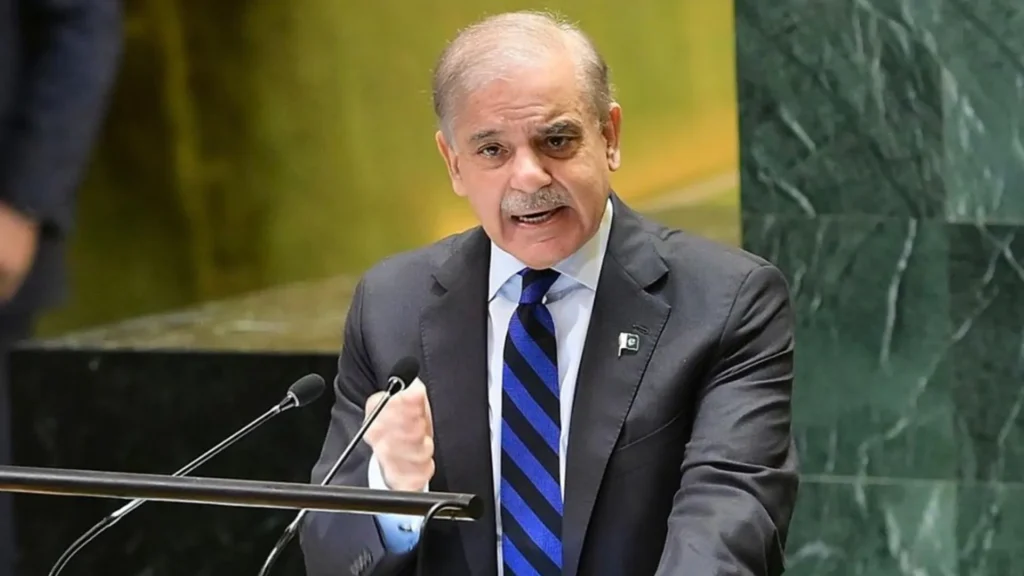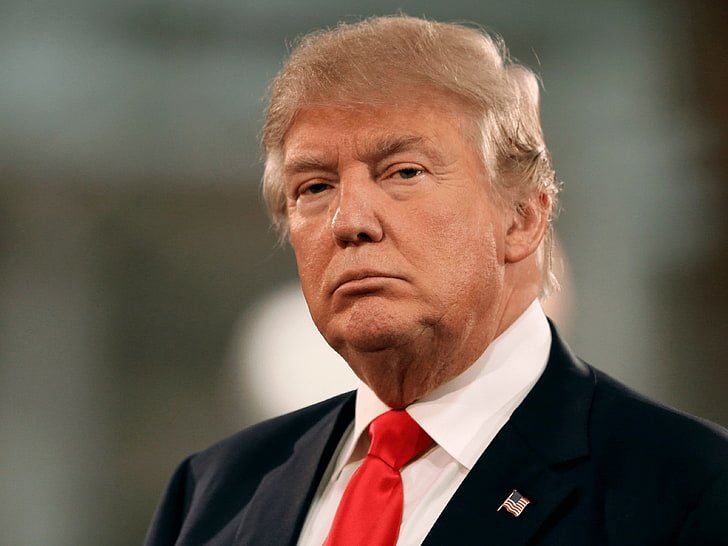Prime Minister Shehbaz Sharif: Government Embraces Solarisation as Most Cost‑Effective Electricity Solution
ISLAMABAD, June 29, 2025 – In a firm reaffirmation of the government’s commitment to affordable energy solutions, Prime Minister Shehbaz Sharif highlighted the importance of solarisation during the inauguration of the “Apna Meter, Apni Reading” (Power Smart) mobile application. The event, held in Islamabad on Sunday, underscored the administration’s efforts to enhance transparency in electricity billing, alleviate consumer burdens, and explore cost‑effective energy alternatives.
1. Solarisation at the Forefront: Embracing the Cheapest Energy Option
At the heart of Prime Minister Sharif’s address was the unwavering support for solar energy adoption, which he described as “the cheapest way of producing electricity in the world.” He noted that global trends increasingly favor solar power due to its falling generation costs, decentralized deployment potential, and environmental benefits. In Pakistan, this message translated into a renewed government push to scale up solar panels across urban and rural households alike.
Sharif emphasized that discouraging solarisation would defy global progress and limit energy access for rural communities—where grid supply is unreliable and costly. He suggested incentivizing rooftop and off‑grid solar installations through tax exemptions, favorable net metering policies, and financing schemes. With falling solar panel prices and a growing appetite for clean energy, he reiterated that Pakistan stood among the leading nations accelerating solar adoption.
2. “Apna Meter, Apni Reading” App: Putting Billing Transparency in Consumers’ Hands
The centerpiece of the event was the unveiling of the “Apna Meter, Apni Reading” (translated as “Our Meter, Our Reading”) app—a tool aimed at eliminating opaque billing practices and restoring consumer trust. The digital platform empowers users to:
-
Submit their own meter readings.
-
Track daily, weekly, and monthly electricity usage.
-
Receive real-time updates on estimated bills.
-
Lodge grievances and request bill adjustments.
-
Understand billing calculations and tariffs.
Prime Minister Sharif shared that the app was intentionally launched in five languages—Urdu, English, Punjabi, Sindhi, and Pashto—to foster national unity and accommodate linguistic diversity. “Energy is the lifeblood of our nation’s progress; so is language. By offering the app in multiple tongues, we’re bringing every province, every citizen, into the fold,” he remarked.
He further directed that within the next quarter, local utility providers across Pakistan—from Peshawar’s valleys to Karachi’s urban sprawl—must roll out the application, ensuring applicability for every household. By linking the app to local Disco (Distribution Company) infrastructure, the initiative aims to integrate field staff and consumer outreach, thereby reducing disputes over inaccurate metering or faulty connections.
3. Elimination of the Rs 35 PTV Fee: A Williams for Consumers
In a move widely welcomed by social media users and activist groups, Prime Minister Sharif also announced the removal of the Rs 35 PTV (Pakistan Television) fee previously embedded in electricity billing. The decision comes as part of a broader cost-relief package targeting middle- and low-income families.
“For years, households paid an extra Rs 35 monthly simply by consuming electricity—effectively subsidizing state television, regardless of whether they watched it or not,” Sharif explained. “By abolishing this arbitrary levy, we’re ensuring electricity bills reflect only actual usage and costs—a fairer, more transparent model.” This fee removal is projected to save families around Rs 420 annually, with even greater relief for large households.
4. Merit‑Based Reforms and Power Sector Overhaul
Sharif’s speech also turned to deeper reforms underway in the power sector. He declared a sweeping initiative to overhaul Disco governance through:
-
Board Restructuring: Replacing politically influenced boards with professionals selected on merit.
-
Transparent Hiring: Instituting merit-based appointments for leadership roles.
-
Anti‑Theft Task Forces: Launching crackdowns on electricity theft networks—some tied to mafia operations.
He lamented that Pakistan loses a staggering Rs 500 billion annually due to line losses and illegal connections. “This is ₹500 billion that could be invested in schools, hospitals, roads—or cheaper electricity. Ending theft and corruption is as much about social justice as it is about economics,” he said earnestly.
He credited ministry teams for working “round the clock” to locate hotspots, deregister thieves, and deploy smart meters capable of remote tamper‑detection. If fully implemented, these reforms could reduce losses by over 15%.
5. Circular Debt Settlement with Banks
Pakistan’s notoriously chronic “circular debt” — the backlog of payments among power generation companies, DISCOs, marketers, and fuel suppliers — has long handicapped the energy sector. PM Sharif revealed that government negotiations with banks and financial institutions have stabilized arrears that soared into hundreds of billions of rupees.
“Our engagement with commercial banks has allowed us to restructure debt installments and clear over‑dues, avoiding interest hikes and liquidity crises,” he stated. This credit relaxation has helped ensure uninterrupted power generation and smoother cash flow across the supply chain—improving overall system reliability.
6. International Market Relief Passed On to Consumers
Global energy prices have been volatile in recent years, fluctuating in response to geopolitical tensions and economic cycles. Prime Minister Sharif assured that Pakistan has strategically passed on reductions in international fuel and electricity costs directly to consumers, without padding it for administrative profits.
He pointed out that while some retailers may mark up prices, the government is committed to keeping K‑electricity tariffs close to fuel import metrics, particularly for liquid fuel–based plants. “What we save abroad, consumers save at home,” he declared.
—
7. Minister’s Remarks: Tech‑Driven Transparency
Minister for Power Division, Sardar Awais Ahmed Khan Leghari, elaborated on the tech‑centric thrust of the app. “This is more than a billing tool—it’s a platform for accountability. No more opaque charges, no more disputed bills,” Minister Leghari said. He acknowledged that overbilling had long plagued residents, but digital trackability and consumer feedback loops embedded in the app would “resolve these once and for all.”
He also mentioned back‑end upgrades planned for Disco software—enabling automated anomaly detection, usage pattern tracking, and flagged fraud alerts for poorly performing transformers or clusters.
8. Courting Chaudhry Nisar for Return to PML‑N
In a parallel political development, Prime Minister Sharif paid a visit to senior politician Chaudhry Nisar Ali Khan, former PML‑N stalwart and Interior Minister (2013–2017), at his Islamabad residence. What began as a friendly get‑together turned into a political overture.
Eyewitnesses described a warm reception. As Sharif stepped out of his car, Nisar greeted him with a broad smile and embraced him. Both exchanged pleasantries before Sharif presented a bouquet. The interaction lasted over an hour and was “pleasant and nostalgic,” according to an official PM media release.
Sources indicated that Sharif extended a formal invitation for Nisar to rejoin the Pakistan Muslim League‑Nawaz. Nisar, who had parted ways with the party in June 2018 over grievances related to election ticket allocations, did not reject the offer outright. He said he would consult close allies and his political base before making a final decision.
9. Candid Reflections: Chaudhry Nisar’s Departure and Return Possibility
To contextualize the significance of the meeting, a brief history:
-
June 2018: Nisar, a PML‑N insider for over three decades, left the party, declaring himself “parting ways with PML‑N” and planning to contest the general elections independently. He attributed his departure to perceived favoritism in ticket distribution—suggesting that slots had been given to “political orphans” rather than loyal veterans.
-
2018 General Election: Nisar lost his National Assembly seat but secured a provincial seat—a modest consolation.
-
2024 General Election: Again ran as an independent after falling short in internal party ticketing; regained his NA seat this time, though his exact margin varied among reports.
His last ministerial appointment was as Interior Minister, a position he held from June 2013 to July 2017—until undisclosed differences emerged with the leadership.
By inviting Nisar back, Sharif is not merely rekindling old ties; he is potentially integrating a seasoned strategist and heavyweight politician—one whose grassroots networks, administrative experience, and loyal voter base could strengthen PML‑N’s foothold.
10. Analysis: Political Calculations Behind the Move
Political analysts have noted several possible motivations:
-
Consolidating Party Cohesion: Bringing back veteran figures helps avert factional splits—especially those that harmed PML‑N’s performance post‑2018.
-
Electoral Gains: A reunited PML‑N could mobilize stronger in traditional strongholds, particularly Punjab and northern districts where Nisar has held sway.
-
Improved Governance: With his resume as Interior Minister, Nisar’s return could support administrative initiatives—especially those related to law enforcement or internal security.
However, uncertainty remains—Nisar may set preconditions regarding party ticket allocation, leadership structure, or regional influence. His final decision, Sharif’s media office confirms, will emerge “in the coming weeks.”
11. Broader Implications: From Energy to Governance
Taken together, the events of Sunday signify a dual thrust in Sharif’s leadership:
-
Consumer‑Focused Governance
-
The solarisation push, PTV‑fee abolition, and digital billing platform mark robust pro-consumer signals—particularly favored by urban middle classes and digital natives.
-
-
Institutional Reform & Political Realignment
-
Disco reforms, debt settlement, and anti‑theft drives indicate an attempt to structurally fix long‑standing sectoral weaknesses.
-
Reconciliation with Nisar hints at a political reset aimed at renewing party vitality and national unity.
-
Additional Context: National Power Landscape
To better understand the backdrop:
-
Energy Mix and Challenges: Pakistan currently relies on a mix of hydel, thermal, nuclear, and an increasing share of renewables. Discos suffer from circular debt, under‑billing, outdated infrastructure, and operational inefficiencies.
-
Solar Potential: With abundant sunlight and declining solar panel costs, rooftop and micro‑grid solar systems offer tremendous potential—especially in remote and underserved areas where extending the grid is expensive.
-
Transparency Campaigns Globally: Countries like India, Brazil, and parts of Africa have rolled out billing apps or prepaid meters with some success—reducing disputes and improving revenue collection.
Indeed, if deployed effectively, Pakistan’s new billing app could be a global model for transparency and civic engagement in utility services.
Looking Forward: What to Watch
-
Roll‑Out Progress: Monitor over the next 90 days how many households adopt the “Apna Meter” app and how Discos implement backend integration.
-
Solar Uptake: Will the government enforce net‑metering policies and subsidies that make rooftop solar accessible to residential customers?
-
Nisar’s Return: Will Chaudhry Nisar announce his decision? If he rejoins PML‑N, will he contest provincial or national seats?
-
Power Theft Crackdown: Keep an eye on announced arrests, seizures of illegal hook‑ups, and smart meter deployment stats.
In Summary
Prime Minister Shehbaz Sharif’s vision combines pragmatic reform and political outreach:
-
Consumer empowerment through app-driven transparency and tariff relief.
-
Sector reform via merit-based governance, digitalisation, and anti-theft action.
-
Energy diversification, especially by promoting solar power as Pakistan’s most affordable electricity source.
-
Political reconciliation, symbolized by the invitation extended to Chaudhry Nisar.
Sunday’s announcements reflect a strategic blend of policy pragmatism and political repositioning—aimed at delivering results on the ground while strengthening the PML‑N’s organizational foundation ahead of future electoral cycles.
Prime Minister Shehbaz Sharif: Government Embraces Solarisation as Most Cost‑Effective Electricity Solution
ISLAMABAD, June 29, 2025 – In a firm reaffirmation of the government’s commitment to affordable energy solutions, Prime Minister Shehbaz Sharif highlighted the importance of solarisation during the inauguration of the “Apna Meter, Apni Reading” (Power Smart) mobile application. The event, held in Islamabad on Sunday, underscored the administration’s efforts to enhance transparency in electricity billing, alleviate consumer burdens, and explore cost‑effective energy alternatives.
1. Solarisation at the Forefront: Embracing the Cheapest Energy Option
At the heart of Prime Minister Sharif’s address was the unwavering support for solar energy adoption, which he described as “the cheapest way of producing electricity in the world.” He noted that global trends increasingly favor solar power due to its falling generation costs, decentralized deployment potential, and environmental benefits. In Pakistan, this message translated into a renewed government push to scale up solar panels across urban and rural households alike.
Sharif emphasized that discouraging solarisation would defy global progress and limit energy access for rural communities—where grid supply is unreliable and costly. He suggested incentivizing rooftop and off‑grid solar installations through tax exemptions, favorable net metering policies, and financing schemes. With falling solar panel prices and a growing appetite for clean energy, he reiterated that Pakistan stood among the leading nations accelerating solar adoption.
2. “Apna Meter, Apni Reading” App: Putting Billing Transparency in Consumers’ Hands
The centerpiece of the event was the unveiling of the “Apna Meter, Apni Reading” (translated as “Our Meter, Our Reading”) app—a tool aimed at eliminating opaque billing practices and restoring consumer trust. The digital platform empowers users to:
-
Submit their own meter readings.
-
Track daily, weekly, and monthly electricity usage.
-
Receive real-time updates on estimated bills.
-
Lodge grievances and request bill adjustments.
-
Understand billing calculations and tariffs.
Prime Minister Sharif shared that the app was intentionally launched in five languages—Urdu, English, Punjabi, Sindhi, and Pashto—to foster national unity and accommodate linguistic diversity. “Energy is the lifeblood of our nation’s progress; so is language. By offering the app in multiple tongues, we’re bringing every province, every citizen, into the fold,” he remarked.
He further directed that within the next quarter, local utility providers across Pakistan—from Peshawar’s valleys to Karachi’s urban sprawl—must roll out the application, ensuring applicability for every household. By linking the app to local Disco (Distribution Company) infrastructure, the initiative aims to integrate field staff and consumer outreach, thereby reducing disputes over inaccurate metering or faulty connections.
3. Elimination of the Rs 35 PTV Fee: A Williams for Consumers
In a move widely welcomed by social media users and activist groups, Prime Minister Sharif also announced the removal of the Rs 35 PTV (Pakistan Television) fee previously embedded in electricity billing. The decision comes as part of a broader cost-relief package targeting middle- and low-income families.
“For years, households paid an extra Rs 35 monthly simply by consuming electricity—effectively subsidizing state television, regardless of whether they watched it or not,” Sharif explained. “By abolishing this arbitrary levy, we’re ensuring electricity bills reflect only actual usage and costs—a fairer, more transparent model.” This fee removal is projected to save families around Rs 420 annually, with even greater relief for large households.
‘Kya 5-Minute ki Break Le Lein? Meri Namaz Qaza Ho jayegi’, CM Maryam Nawaz
Read This Artical
4. Merit‑Based Reforms and Power Sector Overhaul
Sharif’s speech also turned to deeper reforms underway in the power sector. He declared a sweeping initiative to overhaul Disco governance through:
-
Board Restructuring: Replacing politically influenced boards with professionals selected on merit.
-
Transparent Hiring: Instituting merit-based appointments for leadership roles.
-
Anti‑Theft Task Forces: Launching crackdowns on electricity theft networks—some tied to mafia operations.
He lamented that Pakistan loses a staggering Rs 500 billion annually due to line losses and illegal connections. “This is ₹500 billion that could be invested in schools, hospitals, roads—or cheaper electricity. Ending theft and corruption is as much about social justice as it is about economics,” he said earnestly.
He credited ministry teams for working “round the clock” to locate hotspots, deregister thieves, and deploy smart meters capable of remote tamper‑detection. If fully implemented, these reforms could reduce losses by over 15%.
5. Circular Debt Settlement with Banks
Pakistan’s notoriously chronic “circular debt” — the backlog of payments among power generation companies, DISCOs, marketers, and fuel suppliers — has long handicapped the energy sector. PM Sharif revealed that government negotiations with banks and financial institutions have stabilized arrears that soared into hundreds of billions of rupees.
“Our engagement with commercial banks has allowed us to restructure debt installments and clear over‑dues, avoiding interest hikes and liquidity crises,” he stated. This credit relaxation has helped ensure uninterrupted power generation and smoother cash flow across the supply chain—improving overall system reliability solarisation.
6. International Market Relief Passed On to Consumers
Global energy prices have been volatile in recent years, fluctuating in response to geopolitical tensions and economic cycles. Prime Minister Sharif assured that Pakistan has strategically passed on reductions in international fuel and electricity costs directly to consumers, without padding it for administrative profits solarisation.
He pointed out that while some retailers may mark up prices, the government is committed to keeping K‑electricity tariffs close to fuel import metrics, particularly for liquid fuel–based plants. “What we save abroad, consumers save at home,” he declared solarisation.
7. Minister’s Remarks: Tech‑Driven Transparency
Minister for Power Division, Sardar Awais Ahmed Khan Leghari, elaborated on the tech‑centric thrust of the app. “This is more than a billing tool—it’s a platform for accountability. No more opaque charges, no more disputed bills,” Minister Leghari said. He acknowledged that overbilling had long plagued residents, but digital trackability and consumer feedback loops embedded in the app would “resolve these once and for all solarisation.
He also mentioned back‑end upgrades planned for Disco software—enabling automated anomaly detection, usage pattern tracking, and flagged fraud alerts for poorly performing transformers or clusters solarisation.
8. Courting Chaudhry Nisar for Return to PML‑N
In a parallel political development, Prime Minister Sharif paid a visit to senior politician Chaudhry Nisar Ali Khan, former PML‑N stalwart and Interior Minister (2013–2017), at his Islamabad residence. What began as a friendly get‑together turned into a political overture solarisation.
Eyewitnesses described a warm reception. As Sharif stepped out of his car, Nisar greeted him with a broad smile and embraced him. Both exchanged pleasantries before Sharif presented a bouquet. The interaction lasted over an hour and was “pleasant and nostalgic,” according to an official PM media release solarisation.
Sources indicated that Sharif extended a formal invitation for Nisar to rejoin the Pakistan Muslim League‑Nawaz. Nisar, who had parted ways with the party in June 2018 over grievances related to election ticket allocations, did not reject the offer outright. He said he would consult close allies and his political base before making a final decision solarisation.
9. Candid Reflections: Chaudhry Nisar’s Departure and Return Possibility
To contextualize the significance of the meeting, a brief history:
-
June 2018: Nisar, a PML‑N insider for over three decades, left the party, declaring himself “parting ways with PML‑N” and planning to contest the general elections independently. He attributed his departure to perceived favoritism in ticket distribution—suggesting that slots had been given to “political orphans” rather than loyal veterans solarisation.
-
2018 General Election: Nisar lost his National Assembly seat but secured a provincial seat—a modest consolation solarisation.
-
2024 General Election: Again ran as an independent after falling short in internal party ticketing; regained his NA seat this time, though his exact margin varied among reports solarisation.
His last ministerial appointment was as Interior Minister, a position he held from June 2013 to July 2017—until undisclosed differences emerged with the leadership.
By inviting Nisar back, Sharif is not merely rekindling old ties; he is potentially integrating a seasoned strategist and heavyweight politician—one whose grassroots networks, administrative experience, and loyal voter base could strengthen PML‑N’s foothold solarisation.
10. Analysis: Political Calculations Behind the Move
Political analysts have noted several possible motivations:
-
Consolidating Party Cohesion: Bringing back veteran figures helps avert factional splits—especially those that harmed PML‑N’s performance post‑2018.
-
Electoral Gains: A reunited PML‑N could mobilize stronger in traditional strongholds, particularly Punjab and northern districts where Nisar has held sway solarisation.
-
Improved Governance: With his resume as Interior Minister, Nisar’s return could support administrative initiatives—especially those related to law enforcement or internal security solarisation.
However, uncertainty remains—Nisar may set preconditions regarding party ticket allocation, leadership structure, or regional influence. His final decision, Sharif’s media office confirms, will emerge “in the coming weeks solarisation.
11. Broader Implications: From Energy to Governance
Taken together, the events of Sunday signify a dual thrust in Sharif’s leadership:
-
Consumer‑Focused Governance
-
The solarisation push, PTV‑fee abolition, and digital billing platform mark robust pro-consumer signals—particularly favored by urban middle classes and digital natives solarisation.
-
-
Institutional Reform & Political Realignment
-
Disco reforms, debt settlement, and anti‑theft drives indicate an attempt to structurally fix long‑standing sectoral weaknesses solarisation.
-
Reconciliation with Nisar hints at a political reset aimed at renewing party vitality and national unity solarisation.
-
Additional Context: National Power Landscape
To better understand the backdrop:
-
Energy Mix and Challenges: Pakistan currently relies on a mix of hydel, thermal, nuclear, and an increasing share of renewables. Discos suffer from circular debt, under‑billing, outdated infrastructure, and operational inefficiencies solarisation.
-
Solar Potential: With abundant sunlight and declining solar panel costs, rooftop and micro‑grid solar systems offer tremendous potential—especially in remote and underserved areas where extending the grid is expensive solarisation.
-
Transparency Campaigns Globally: Countries like India, Brazil, and parts of Africa have rolled out billing apps or prepaid meters with some success—reducing disputes and improving revenue collection solarisation.
Indeed, if deployed effectively, Pakistan’s new billing app could be a global model for transparency and civic engagement in utility services.




